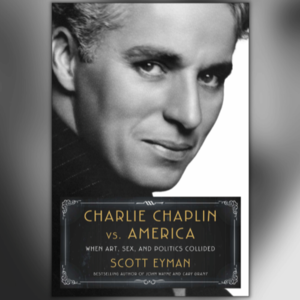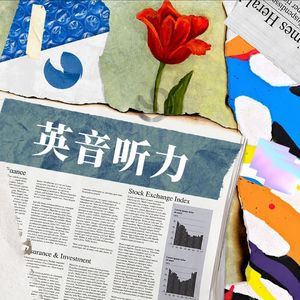Culture Book review
文化板块 书评
The politics of Hollywood Anatomy of a cancellation
好莱坞的政治 撤销的解析
Charlie Chaplin vs America. By Scott Eyman.
《查理·卓别林 VS 美国》斯科特·艾曼著
In today's culture wars, Hollywood has a starring role. Films tend to trigger debates about America's history and values. That has long been the case, as a new book, "Charlie Chaplin vs America", shows. Chaplin, a British citizen, was harassed by the American government, culminating in the revocation of a re-entry permit in 1952. It is a sobering account of cancel culture in action. Indeed, it makes some of the current spats seem toothless by comparison.
在当今的文化战争中,好莱坞是主角。电影往往会引发有关美国历史和价值观的争论。正如一本新书《查理·卓别林vs美国》所述,这种情况一直存在。卓别林是英国公民,曾受到美国政府的侵扰,最终于1952年被撤销了再入境许可。书中对撤销文化的描述令人警醒。事实上,相比之下,它让当前的一些争吵显得无足轻重。
"I don't want to create revolution," Chaplin said. "I just want to create a few more pictures." But the FBI, suspecting Chaplin of communist sympathies, started surveilling the film-maker in 1922. In a paranoid climate, many looked for evidence of Marxism. Those convinced Chaplin was "red" pointed to his screen persona, the Tramp, an embodiment of the beleaguered everyman. They perceived it, too, in "Modern Times" (1936), a dramatisation of workers' plight due to unemployment and automation, and in "The Great Dictator" (1940), which called out America's isolationism.
Officials did not take kindly to Chaplin speaking out about politics, especially when he called for a second front in the war to alleviate pressure on Russia. Some took umbrage that Chaplin made his fortune in America and deigned to comment on its policies but refused to become a citizen.
None of this was illegal. But the FBI bedevilled him, using political groups and the press to whip up anti-Chaplin sentiment. The bureau fed journalists salacious titbits (which were not in short supply: the man was no stranger to a sex scandal). In the eyes of the public, he became "a louche degenerate with a propensity for young girls and communism", writes the author, Scott Eyman.
When Chaplin set off to promote a movie in Europe, the attorney-general took his chance. The film-maker was blocked from returning under a provision that allowed people of questionable "morals, health or insanity" or those "advocating communism or associating with communist or pro-communist organisations" to be kept out. Chaplin was forced to give up his home and studio and move to Switzerland, where the quality of his work suffered.
By the time he was exiled from America, the intelligence file had swelled to nearly 2,000 pages. It contained no proof of party ties. Instead, it was filled with "hearsay, rumour [and] bountiful examples of guilt by association". Readers will be shocked by how Chaplin was hounded with so little cause. The author convincingly argues that the auteur was "the most prominent victim of the Red Scare" and paints a portrait of a time when freedom of speech was even more embattled than it is today.
🌟 因存在未知违规字符,翻译见公众号【琐简英语】


经济学人|卓别林如何遭到美国的迫害
4分钟 · 798·
798· 0
0
 798
798 0
0
